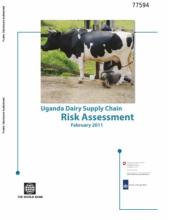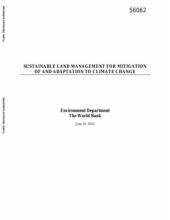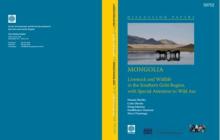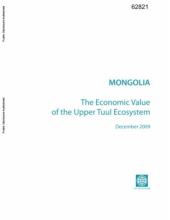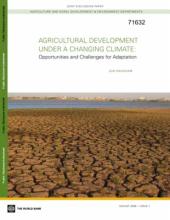/ library resources
Showing items 4564 through 4572 of 4615.Cattle are one of the main instruments for economic (e.g., milk, meat, and cattle sale) and social (e.g., marriage, death, dispute settlement, and gift giving) exchange in Uganda.
The climate change (CC) caused by increase in atmospheric concentration of CO2 and other Greenhouse Gases (GHGs), can be addressed through adaptation and mitigation strategies. Adaptation consists of strategies which minimize vulnerability to CC.
The purpose of this report is to examine development trends in the Southern Gobi Region (SGR) as they affect livestock and wildlife.
The economic value of the Upper Tuul ecosystem in Mongolia reports on a study carried out under the auspices of the World Bank and the Government of Mongolia.
Climate change presents a profound challenge to food security and development.
This strategic framework serves to guide and support the operational response of the World Bank Group (WBG) to new development challenges posed by global climate change. Unabated, climate change threatens to reverse hard-earned development gains.
The main objective of the Country Environmental Analysis (CEA) in Nepal is to identify opportunities for enhancing the overall performance of select environmental management systems through improvements in the effectiveness of institutions, policies, and processes.
Increasingly, social capital, defined as shared norms, trust, and the horizontal and vertical social networks that facilitate coordination and cooperation for mutually beneficial collective action, is seen as an important asset upon which people rely to manage natural resources and resolve confli
Tenure in Mystery collates information on land under conservation, forestry and mining in the Karamoja region.
Paginación
Land Library Search
Through our robust search engine, you can search for any item of the over 73,000 highly curated resources in the Land Library.
If you would like to find an overview of what is possible, feel free to peruse the Search Guide.

